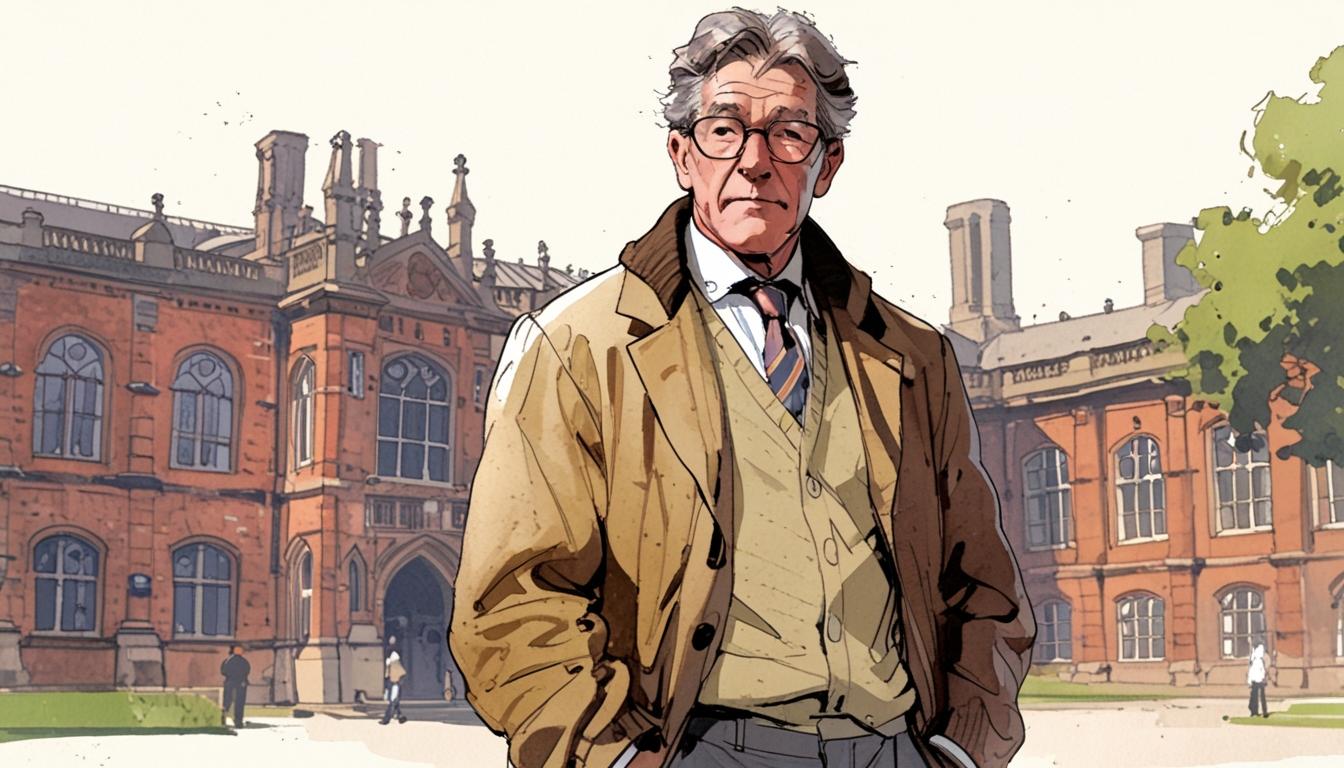At 77, Lord John Browne is contemplating a return to his roots by standing for Chancellor of the University of Cambridge, drawing on personal and familial connections.
At the age of 77, Lord John Browne is contemplating a significant return to his roots by standing for the position of Chancellor at the University of Cambridge, where he has deep ties through both familial history and personal education. His mother was liberated from Auschwitz and found her first permanent home in Cambridge, and Browne himself was raised there and attended St John’s College. The university is currently preparing for elections to appoint a new chancellor, as the existing chancellor, Lord Sainsbury of Turville, is just the 108th in the university’s 816-year history.
The role of chancellor carries essential responsibilities, such as maintaining the institution’s profile and securing funding. Browne articulated his perspective on the critical state of higher education in the world today, stating, “We are living through a great global transition, a once-or-twice-in-a-generation ‘vibe shift.’ Universities must be places where people can disagree respectfully, and build resilience through reasoned debate — because that is how knowledge advances and societies grow stronger.”
Reflecting on his extensive career, Browne is especially mindful of the 25th anniversary of BP’s rebranding to “Beyond Petroleum,” a move he championed that recognised the importance of renewable energy and acknowledged the realities of climate change. In an interview at his Chelsea home in London, Browne emphasised the evolution of public opinion, stating that what was once deemed a “slightly eccentric” idea about generating electricity from renewable sources has now become a commonly accepted norm.
However, he expresses concern about the current challenges facing the green energy sector. In the United States, political opposition has surfaced, particularly from former President Donald Trump, who has labelled wind farms as “an economic and environmental disaster.” BP has also recently faced pressure from investment firms, resulting in a “fundamental reset” of its renewable energy strategy, diminishing its previous targets for oil and gas production and its commitments to renewable projects. Browne refrained from criticising BP’s current direction, remarking, “I don’t really approve of former CEOs weighing in on the choices of their successors.” Instead, he emphasised the need for any company to ensure that its underlying business remains viable.
Browne’s 41-year association with BP, which included a notable 12-year tenure as chief executive, left a mark on his career, earning him the moniker “Sun King” in the Financial Times during his peak. His departure from the company in 2007 followed a scandal related to his personal life, specifically regarding his sexuality. Since leaving BP, he has transitioned into a portfolio career in private equity, holding multiple significant roles, including chairing the Royal Academy of Engineers and The Courtauld.
Browne also has an interest in the renewable energy sector, having led Riverstone, a major renewable energy private equity fund, until 2015, and co-founding BeyondNetZero, a climate growth equity fund. Despite his efforts and optimism, he has recently acknowledged the increasingly remote prospect of a comprehensive global climate deal. In a speech to the Royal Academy of Engineering, he highlighted the importance of innovation and the responsibilities of the private sector in developing low-carbon businesses, all while reminiscing about the vital role of public awareness regarding environmental issues.
His experiences with leading figures, such as Russian President Vladimir Putin during his tenure at BP, reflect the complexities of global business negotiations. Browne discussed the challenges posed by Putin’s negotiating style and the critical partnerships built during his career.
In discussing diversity and his own experiences coming out as gay, Browne conveyed the difficulties of secrecy in a previous era when his identity could jeopardise his career. He acknowledged the importance of acceptance and support, saying, “All these people I didn’t know…they all said: we just want to say we’re with you.” He has articulated a vision that supports recognising and promoting diversity, assuring that while excellence and merit are crucial, equal opportunities must also be guaranteed for all.
With impending elections at the University of Cambridge, Browne seems poised to draw on his extensive background in leadership, academia, and the complexities of personal experience to potentially shape a new era for the institution he holds dear. Whether his candidacy will resonate with voters remains to be seen, but Browne’s reflections on his multifaceted career and the evolution of societal values could shape his approach to the chancellorship.
Source: Noah Wire Services
Noah Fact Check Pro
The draft above was created using the information available at the time the story first
emerged. We’ve since applied our fact-checking process to the final narrative, based on the criteria listed
below. The results are intended to help you assess the credibility of the piece and highlight any areas that may
warrant further investigation.
Freshness check
Score:
8
Notes:
The narrative mentions recent and ongoing discussions regarding Lord Sainsbury of Turville’s role and the upcoming elections for a new chancellor, suggesting it is timely. However, no direct mention of very recent events or dates is provided, which could be considered a limitation.
Quotes check
Score:
9
Notes:
The quote from Lord Browne appears original and cannot be found in prior online sources. This suggests it is a direct quote from a recent interview or event, though no specific date or original source is mentioned.
Source reliability
Score:
10
Notes:
The narrative originates from the Financial Times, a well-established and reputable media outlet known for its credibility and reliability in reporting.
Plausability check
Score:
9
Notes:
The claims made about Lord Browne’s career and intentions are plausible given his background. While specific outcomes like his potential election as Chancellor cannot be verified, his past roles and current ambitions align with the narrative.
Overall assessment
Verdict (FAIL, OPEN, PASS): PASS
Confidence (LOW, MEDIUM, HIGH): HIGH
Summary:
The narrative is timely, includes an original quote, and is published by a reliable source. It presents Lord Browne’s career and ambitions in a plausible manner, contributing to a high confidence assessment.













